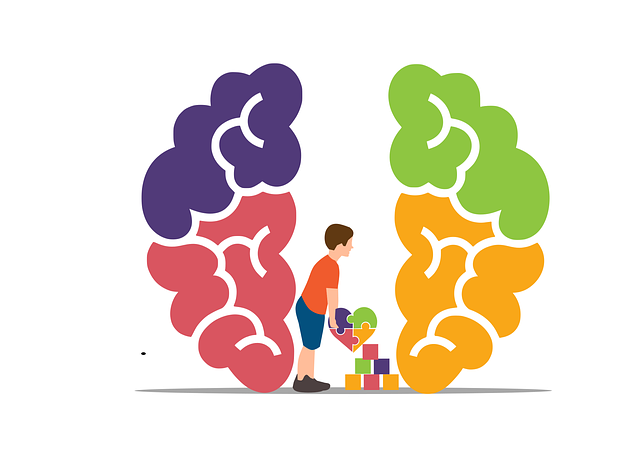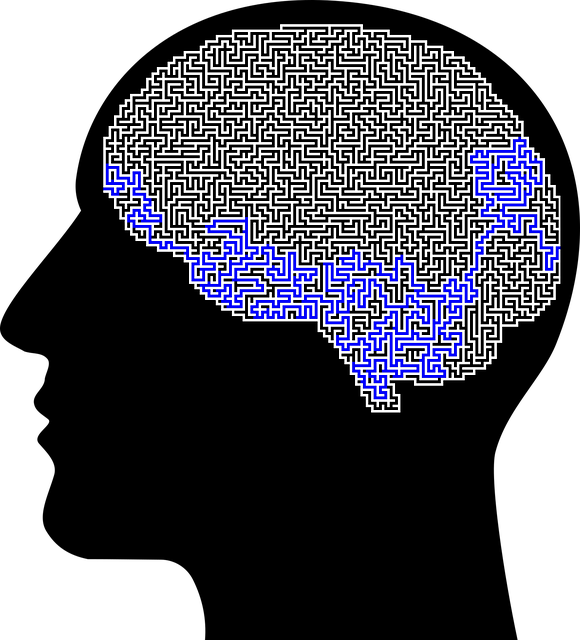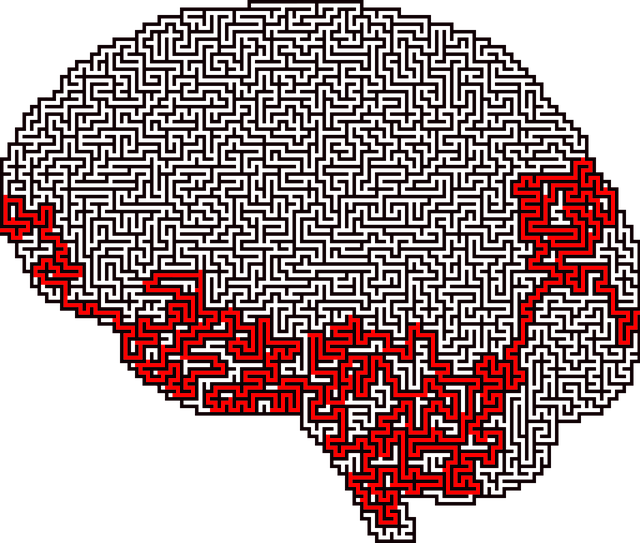In Northglenn dissociative disorder therapy, risk management is crucial for patient safety and therapist well-being. This involves identifying hazards like heavy caseloads or complex cases, implementing preventative measures, and prioritizing self-care to avoid burnout. Strategies include mental wellness journaling, regular reflection, and burnout prevention guidance. Robust risk mitigation ensures a secure environment for healing and growth, integrating evidence-based practices and continuous protocol reviews. Public awareness campaigns and mental wellness coaching programs further support clients between sessions. This comprehensive approach enhances long-term mental wellness for both therapists and their Northglenn dissociative disorder therapy clients.
Mental health professionals constantly navigate complex emotional landscapes, making risk management planning paramount. This article explores essential strategies tailored to Northglenn Dissociative Disorder Therapy (NDDT) practitioners. We delve into understanding risk dynamics unique to NDDT, identifying potential hazards, and developing robust risk assessment frameworks. Effective mitigation strategies for client safety are presented, emphasizing continuous evaluation and improvement. By implementing these guidelines, mental health professionals can enhance their practices, ensuring secure and transformative therapeutic journeys.
- Understanding Risk Management in Mental Health Practice
- Identifying Potential Risks in Northglenn Dissociative Disorder Therapy
- Developing a Comprehensive Risk Assessment Framework
- Implementing Risk Mitigation Strategies for Client Safety
- Continuous Evaluation and Improvement in Risk Management
Understanding Risk Management in Mental Health Practice

In the context of mental health practice, risk management planning is a vital strategy to ensure patient safety and well-being. For professionals in Northglenn Dissociative Disorder Therapy or any specialized area, managing risks effectively involves recognizing potential hazards and implementing preventative measures. This proactive approach aims to foster a healthy work environment, mitigate crises, and promote long-term mental wellness for both practitioners and clients.
Understanding risk management is crucial in addressing the unique challenges of the profession. It includes identifying factors that could contribute to professional burnout, such as heavy caseloads or emotional strain from complex cases. By integrating self-care practices, like Mental Wellness Journaling Exercises, professionals can proactively address these risks. Additionally, regular reflection and guidance on burnout prevention strategies are essential components of a comprehensive risk management plan, fostering resilience among mental health practitioners in Northglenn and beyond.
Identifying Potential Risks in Northglenn Dissociative Disorder Therapy

In Northglenn Dissociative Disorder Therapy, identifying potential risks is a multifaceted process that requires therapists to be vigilant and proactive. This involves recognizing the unique challenges presented by dissociative disorders, which can range from severe identity fragmentation to traumatic memory retrieval. Therapists must be prepared for intense emotions, flashbacks, and potential triggers that may arise during treatment. Self-Care Routine Development for Better Mental Health is crucial here; therapists need robust personal protective mechanisms to avoid burnout and maintain their own mental wellness.
Additionally, considering the sensitive nature of dissociative disorders, public awareness campaigns can play a significant role in destigmatizing these conditions. By increasing community understanding, therapists can foster an environment conducive to open communication and effective treatment. The development of Mental Wellness Coaching Programs can also enhance patient support, offering strategies for managing symptoms between sessions and promoting overall mental health.
Developing a Comprehensive Risk Assessment Framework

Mental health professionals must prioritize risk management to ensure safe and effective care for their clients. Developing a comprehensive risk assessment framework involves systematically evaluating various factors that could impact an individual’s mental health and treatment trajectory. This includes identifying potential risks related to complex disorders like dissociative disorder therapy in Northglenn, as well as social and emotional challenges that might arise during the therapeutic process.
A robust framework should incorporate aspects such as client history, current circumstances, and specific symptoms. By meticulously assessing these elements, professionals can identify early warning signs of escalating risks, whether they be related to self-harm, suicide, or other adverse outcomes. Incorporating strategies for monitoring and mitigating these risks is essential, drawing on evidence-based practices like social skills training and mental health education programs design, as well as implementing emotional healing processes tailored to each client’s unique needs.
Implementing Risk Mitigation Strategies for Client Safety

Implementing Risk Mitigation Strategies is an essential aspect of ensuring client safety in mental health practice, especially for professionals specializing in conditions like dissociative disorder therapy in Northglenn. It involves a proactive approach to anticipate and manage potential risks that may arise during therapy sessions. By adopting effective risk management techniques, therapists can create a secure environment that fosters healing and growth while minimizing hazards.
One key strategy is incorporating the Mind Over Matter principles into daily practice. This involves encouraging clients to develop robust self-care routines tailored to their unique needs. Prioritizing self-care not only enhances professionals’ resilience but also empowers them to better assist clients in managing stress, anxiety, and potential triggers. Additionally, burnout prevention should be a central focus, as it is a significant risk factor for mental health practitioners, ultimately impacting client care quality.
Continuous Evaluation and Improvement in Risk Management

Mental health professionals are tasked with managing complex risks daily, making continuous evaluation and improvement in risk management strategies crucial. This involves regular reviews of existing protocols to ensure they remain effective and relevant, especially in treating diverse conditions like Northglenn dissociative disorder therapy. Adapting practices based on emerging research and feedback from clients fosters a dynamic approach to care.
By integrating insights from the Mental Wellness Podcast Series Production, which delves into various therapeutic techniques, professionals can enhance their risk management skills. The Mind Over Matter Principles encourage self-reflection, allowing therapists to strengthen their inner strength development while managing risks. This holistic process ensures that both the therapist and client remain safe and supported throughout the healing journey.
Mental health professionals play a vital role in guiding clients towards recovery, and effective risk management planning is essential to ensure safe and successful therapy. By identifying potential risks specific to Northglenn Dissociative Disorder Therapy, such as complex trauma and dissociation, practitioners can develop comprehensive assessment frameworks. Implementing strategic risk mitigation techniques allows for proactive client safety measures. Continuous evaluation of these processes ensures the highest level of care, fostering a supportive environment where clients can embark on their journey to healing without undue hazards. This structured approach to risk management is a game-changer, revolutionizing Northglenn Dissociative Disorder Therapy and enhancing overall therapeutic outcomes.














